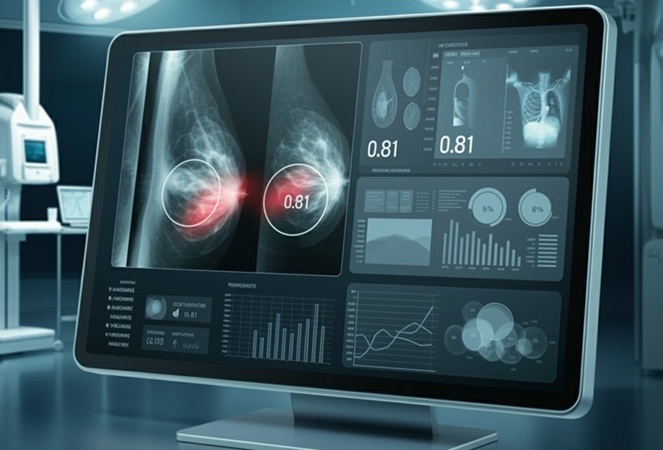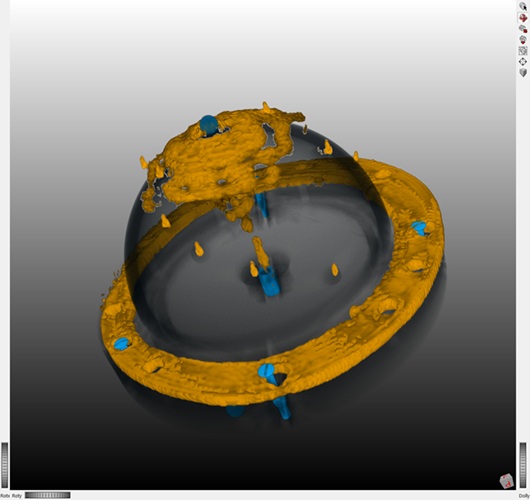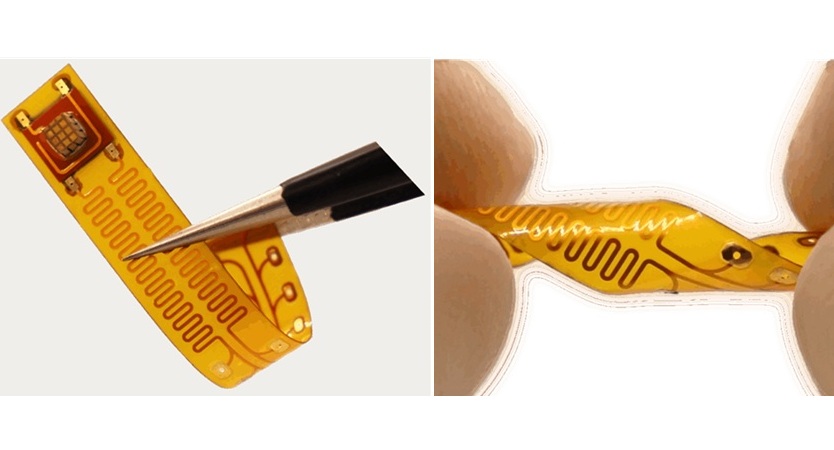GE Healthcare Introduces New CT System with AI Suite to Increase Operational Efficiency and Patient Comfort
|
By MedImaging International staff writers Posted on 30 Sep 2021 |
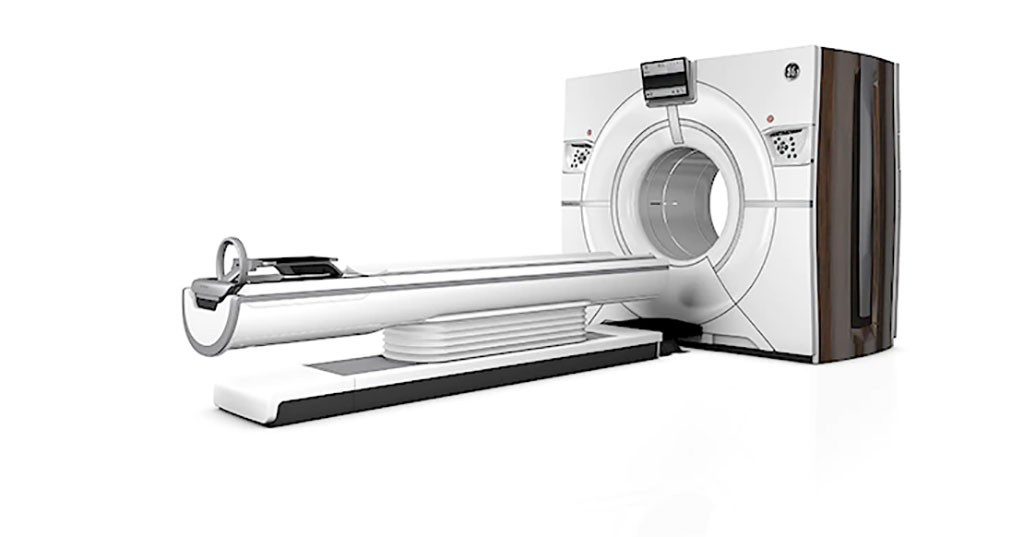
GE Healthcare (Chicago, IL, USA) has launched its new computed tomography (CT) system, Revolution Ascend with Effortless Workflow, offering clinicians a collection of artificial intelligence (AI) technologies that automate and simplify time-consuming tasks to increase operational efficiency and free up time for clinicians to deliver more personalized care to more patients.
For nearly 50 years, CT has proven to be a vital imaging tool used by clinicians to detect cancer, stroke, heart conditions, and other diseases. However, as CT procedure volume grows – reaching an all-time high ahead of the COVID-19 pandemic - so too does the need to optimize CT protocols and expand patient positioning options to help expedite exams and accommodate more patients.
Revolution Ascend helps address these challenges with GE Healthcare’s Effortless Workflow, a new suite of AI solutions that personalize scans accurately and automatically for each patient while requiring significantly less effort from the CT technologist. It starts with the technologist using the system’s attached bar code reader to scan the patient’s chart or tag and personalize each exam: automatically pulling up the patient’s information and suggesting relevant protocols. With one click, the CT technologist can then initiate Auto Positioning, which uses real-time depth-sensing technology to generate a 3D model of the patient’s body and a deep learning algorithm to determine the correct table elevation and cradle movements to align the center of the scan range with the isocenter of the bore. Once the patient is ready to be scanned, intelligent tools embedded in the new Clarity Operator Environment provide optimal scan range settings, dose, and image quality for each individual, helping to deliver greater efficiency and more personalized medicine across clinical care areas.
Additionally, Revolution Ascend uses a dedicated deep neural network to generate TrueFidelity CT Images to help improve reading confidence in a wide range of clinical applications - such as head, whole body, and cardiovascular, for patients of all ages. Compared to even the most advanced iterative reconstruction technology, TrueFidelity CT Images can elevate every image to a powerful first impression with impressive image quality performance, and preferred image sharpness and noise texture – all without compromising the low dose levels to which clinicians have grown accustomed.
Furthermore, the CT system’s new 75 cm wide-gantry, 40 mm detector coverage, and lower table position are designed to accommodate high body mass index (BMI) patients as well as trauma cases that would otherwise be too delicate to maneuver in a smaller size gantry. The wide-gantry design with lower table position increases the patient area inside the bore by 22% to provide patients additional space for a more comfortable CT scanning experience. This new wider bore design represents the widest gantry aperture at the shortest geometry design in its class.
Revolution Ascend’s Effortless Workflow, as well as additional advanced applications, are offered as an upgrade to existing GE Healthcare CT systems or by acquiring Smart Subscription - an Edison service - which provides access to the latest CT device software across a hospital system’s entire CT fleet. This common access to GE Healthcare’s digital ecosystem of applications helps increase staff efficiency, reduces training, and improves satisfaction by ensuring there is one set of capabilities for healthcare workers to learn, operate and read.
“We designed Revolution Ascend with accessibility in mind,” explained Jean-Luc Procaccini, President & CEO, Molecular Imaging & Computed Tomography, GE Healthcare. “Not only does the system’s hardware help accommodate more patients with various physical limitations, but its cutting-edge AI also helps expedite exams so healthcare system schedules can accommodate additional patient scans. Altogether, Revolution Ascend with Effortless Workflow helps empower clinicians to reach the right diagnosis as efficiently and precisely as possible for more patients.”
Related Links:
GE Healthcare
Latest General/Advanced Imaging News
- Cutting-Edge Angio-CT Solution Offers New Therapeutic Possibilities
- Extending CT Imaging Detects Hidden Blood Clots in Stroke Patients
- Groundbreaking AI Model Accurately Segments Liver Tumors from CT Scans
- New CT-Based Indicator Helps Predict Life-Threatening Postpartum Bleeding Cases
- CT Colonography Beats Stool DNA Testing for Colon Cancer Screening
- First-Of-Its-Kind Wearable Device Offers Revolutionary Alternative to CT Scans
- AI-Based CT Scan Analysis Predicts Early-Stage Kidney Damage Due to Cancer Treatments
- CT-Based Deep Learning-Driven Tool to Enhance Liver Cancer Diagnosis
- AI-Powered Imaging System Improves Lung Cancer Diagnosis
- AI Model Significantly Enhances Low-Dose CT Capabilities
- Ultra-Low Dose CT Aids Pneumonia Diagnosis in Immunocompromised Patients
- AI Reduces CT Lung Cancer Screening Workload by Almost 80%
- Cutting-Edge Technology Combines Light and Sound for Real-Time Stroke Monitoring
- AI System Detects Subtle Changes in Series of Medical Images Over Time
- New CT Scan Technique to Improve Prognosis and Treatments for Head and Neck Cancers
- World’s First Mobile Whole-Body CT Scanner to Provide Diagnostics at POC
Channels
Radiography
view channel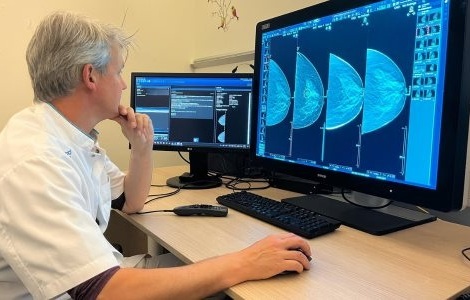
AI Hybrid Strategy Improves Mammogram Interpretation
Breast cancer screening programs rely heavily on radiologists interpreting mammograms, a process that is time-intensive and subject to errors. While artificial intelligence (AI) models have shown strong... Read more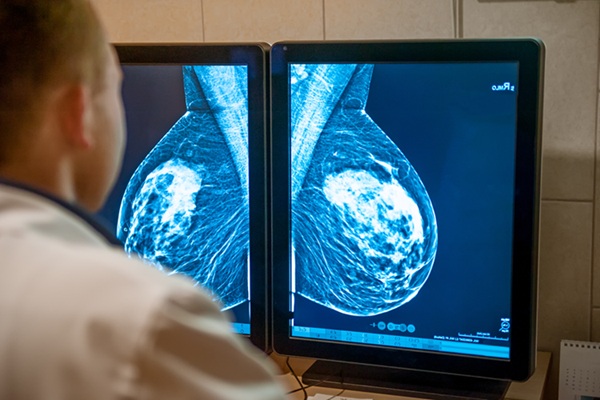
AI Technology Predicts Personalized Five-Year Risk of Developing Breast Cancer
Breast cancer remains one of the most common cancers among women, with about one in eight receiving a diagnosis in their lifetime. Despite widespread use of mammography, about 34% of patients in the U.... Read moreMRI
view channel
AI-Assisted Model Enhances MRI Heart Scans
A cardiac MRI can reveal critical information about the heart’s function and any abnormalities, but traditional scans take 30 to 90 minutes and often suffer from poor image quality due to patient movement.... Read more
AI Model Outperforms Doctors at Identifying Patients Most At-Risk of Cardiac Arrest
Hypertrophic cardiomyopathy is one of the most common inherited heart conditions and a leading cause of sudden cardiac death in young individuals and athletes. While many patients live normal lives, some... Read moreUltrasound
view channel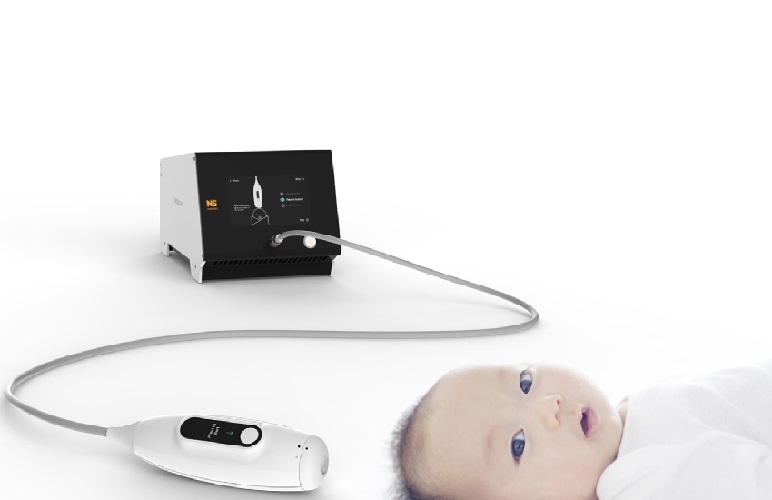
Non-Invasive Ultrasound-Based Tool Accurately Detects Infant Meningitis
Meningitis, an inflammation of the membranes surrounding the brain and spinal cord, can be fatal in infants if not diagnosed and treated early. Even when treated, it may leave lasting damage, such as cognitive... Read more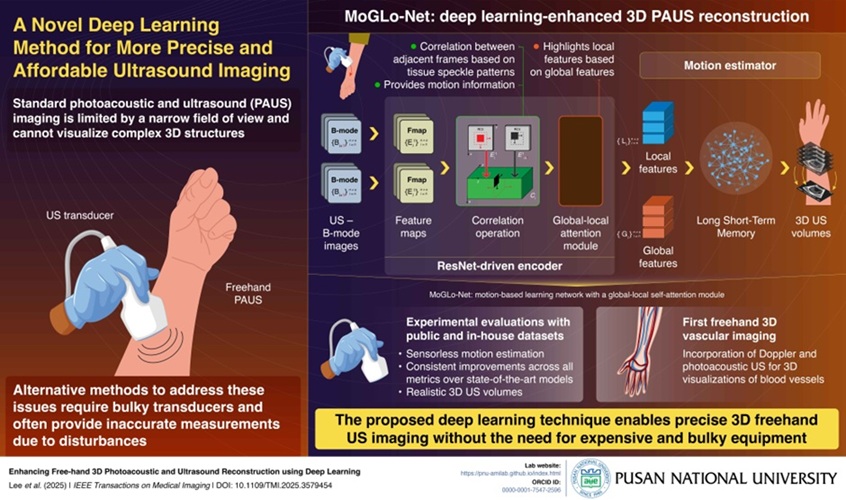
Breakthrough Deep Learning Model Enhances Handheld 3D Medical Imaging
Ultrasound imaging is a vital diagnostic technique used to visualize internal organs and tissues in real time and to guide procedures such as biopsies and injections. When paired with photoacoustic imaging... Read moreNuclear Medicine
view channel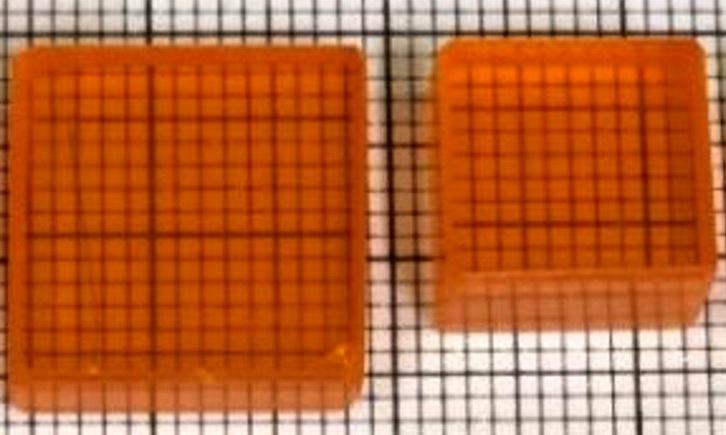
New Camera Sees Inside Human Body for Enhanced Scanning and Diagnosis
Nuclear medicine scans like single-photon emission computed tomography (SPECT) allow doctors to observe heart function, track blood flow, and detect hidden diseases. However, current detectors are either... Read more
Novel Bacteria-Specific PET Imaging Approach Detects Hard-To-Diagnose Lung Infections
Mycobacteroides abscessus is a rapidly growing mycobacteria that primarily affects immunocompromised patients and those with underlying lung diseases, such as cystic fibrosis or chronic obstructive pulmonary... Read moreImaging IT
view channel
New Google Cloud Medical Imaging Suite Makes Imaging Healthcare Data More Accessible
Medical imaging is a critical tool used to diagnose patients, and there are billions of medical images scanned globally each year. Imaging data accounts for about 90% of all healthcare data1 and, until... Read more
Global AI in Medical Diagnostics Market to Be Driven by Demand for Image Recognition in Radiology
The global artificial intelligence (AI) in medical diagnostics market is expanding with early disease detection being one of its key applications and image recognition becoming a compelling consumer proposition... Read moreIndustry News
view channel
GE HealthCare and NVIDIA Collaboration to Reimagine Diagnostic Imaging
GE HealthCare (Chicago, IL, USA) has entered into a collaboration with NVIDIA (Santa Clara, CA, USA), expanding the existing relationship between the two companies to focus on pioneering innovation in... Read more
Patient-Specific 3D-Printed Phantoms Transform CT Imaging
New research has highlighted how anatomically precise, patient-specific 3D-printed phantoms are proving to be scalable, cost-effective, and efficient tools in the development of new CT scan algorithms... Read more
Siemens and Sectra Collaborate on Enhancing Radiology Workflows
Siemens Healthineers (Forchheim, Germany) and Sectra (Linköping, Sweden) have entered into a collaboration aimed at enhancing radiologists' diagnostic capabilities and, in turn, improving patient care... Read more












